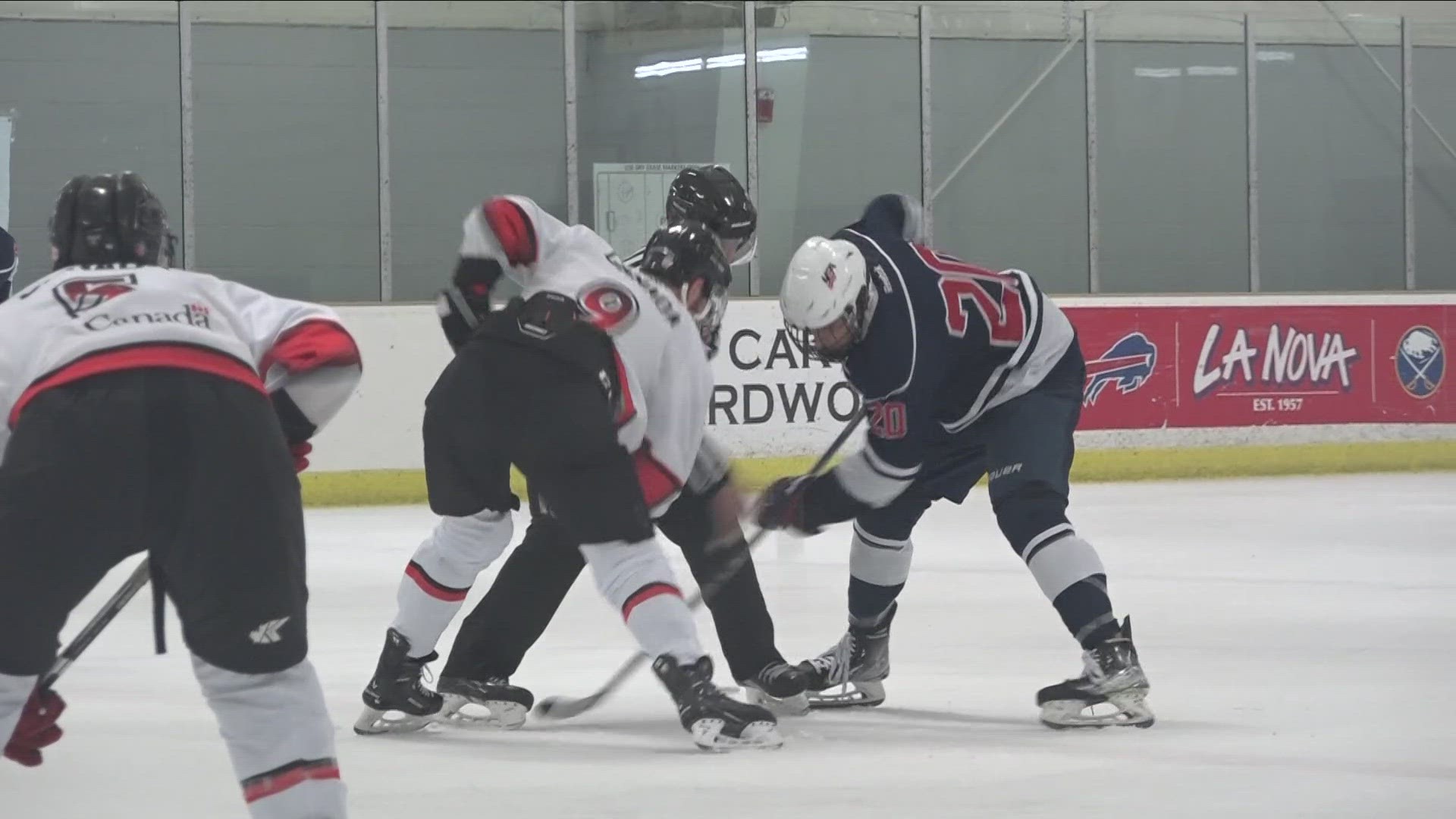AMHERST, N.Y. — The sounds of hockey that often come to mind are the loud horns and whistles that accentuate the highs and lows of the game we all know and love.
However, for two USA men's deaf team forwards, Max Finley and Peter Gintoli, on-ice communication takes a different form.
"I'm profoundly deaf in both ears, so I can't hear anything out of either ear. To me it's dead silence," Finley said.
"On the ice, I can hear the whistles but still I'm not that comfortable out there without my hearing aids on," Gintoli said.
Whether it's the use of interpreters on the bench, or the strobe lights flashing along the rink in place of a whistle, deaf or hard of hearing hockey players adapt to any and all challenges that have come their way.
"Picking your head up, stick tapping, really just trying to get their attention and see where everybody's at," Finley said. "I know a couple people say they look into the glass when they're playing to see what's behind them."
These are all the ways that players like Finley and Gintoli were able to skate in the inaugural Jeff Sauer International Deaf Hockey Series this past weekend at the Northtown Center in Amherst.
The tournament hosted by AHIHA, or the American Hearing Impaired Hockey Association, and the Stan Mikita Hockey School for the Deaf and Hard of Hearing, features the best players from across four different countries.
The men’s teams included the United States, Canada, Czech Republic, and Finland while the women's side only consisted of the United States and Canada.
The event named after Jeff Sauer, the former head coach of the USA men's deaf team, has given deaf and hard of hearing athletes the chance to compete at the highest level.
"Anytime you get to put the USA jersey on and represent the United States, it means a lot," Finley said.
"There's a lot of people in our corner that we've known for almost over 20 years, so, to play for those people and play for yourself, too, it means a lot," Gintoli said.
The four-day round robin event helps to showcase these athletes abilities and highlight what the sport has given back to them.
"This is probably my seventh event and I'm proud to be able to come to all of these and still be able to play at the age of 32," Gintoli said.
"We're hockey players just like everybody else and at the end of the day our hearing loss doesn't define us," Finley said. "We're out there, normal people doing normal things and we love the game of hockey just as much as anybody else. It gives us a great chance to just come together and play the sport we love."
At the end of the tournament on championship Sunday, Team Canada went on to beat the United States in the men's gold medal game with a 5-4 final score. Team USA won the silver medal.
RELATED VIDEO:
If you want to find out more about deaf or hard of hearing hockey and how to get involved, you can visit their website at AHIHA.org for more information.

